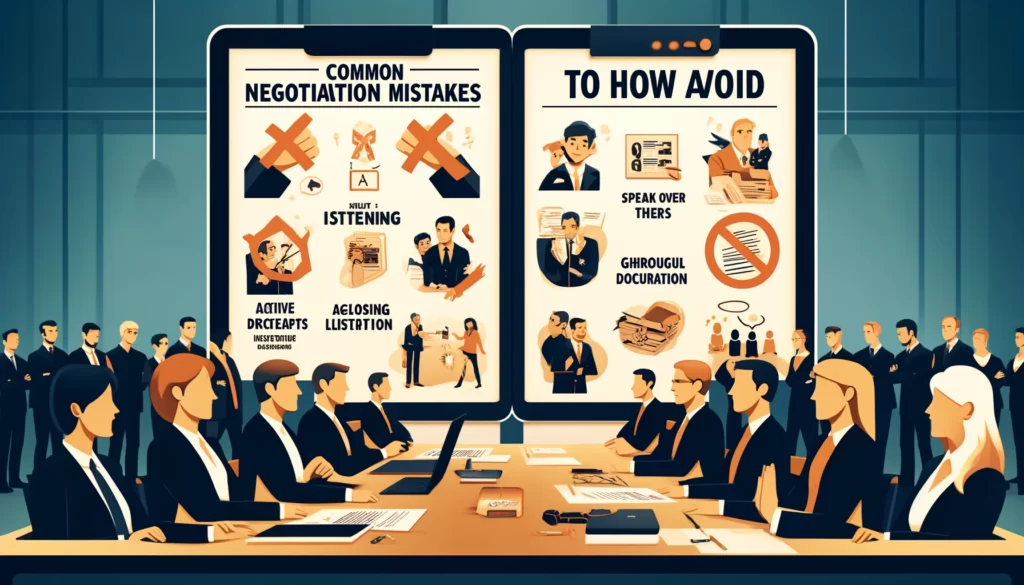Negotiating is a skill that can be honed over time, but even seasoned negotiators can fall into common traps that undermine their effectiveness. By being aware of these pitfalls and knowing how to avoid them, you can increase your chances of achieving successful outcomes in negotiations. One common mistake is failing to prepare adequately. […]

Negotiating is a skill that can be honed over time, but even seasoned negotiators can fall into common traps that undermine their effectiveness. By being aware of these pitfalls and knowing how to avoid them, you can increase your chances of achieving successful outcomes in negotiations.
One common mistake is failing to prepare adequately. Negotiations require thorough preparation, including researching the other party, understanding your own priorities and objectives, and anticipating potential challenges. Skipping this step can leave you unprepared and vulnerable during the negotiation process.
Another mistake is approaching negotiations with a win-lose mindset. Negotiations should be collaborative, with the goal of finding mutually beneficial solutions. Adopting a win-win mindset allows you to focus on creating value for both parties rather than simply trying to outmaneuver the other side.
Lack of active listening is also a common pitfall in negotiations. Effective communication is essential, and this includes listening attentively to the other party’s concerns and perspectives. Failing to listen can lead to misunderstandings and missed opportunities for finding common ground.
Being overly emotional during negotiations is another mistake to avoid. Emotions can cloud judgment and hinder rational decision-making. It’s important to stay calm and composed, even in high-pressure situations, and to approach negotiations with a level head.
Finally, failing to follow through on commitments is a mistake that can damage trust and credibility. If you agree to certain terms or concessions during negotiations, it’s essential to honor those commitments once the agreement is reached. Failing to do so can strain relationships and undermine future negotiations.
To avoid these common mistakes, it’s important to approach negotiations with thorough preparation, a collaborative mindset, active listening skills, emotional intelligence, and a commitment to integrity and follow-through. By doing so, you can navigate negotiations more effectively and achieve positive outcomes for all parties involved.





